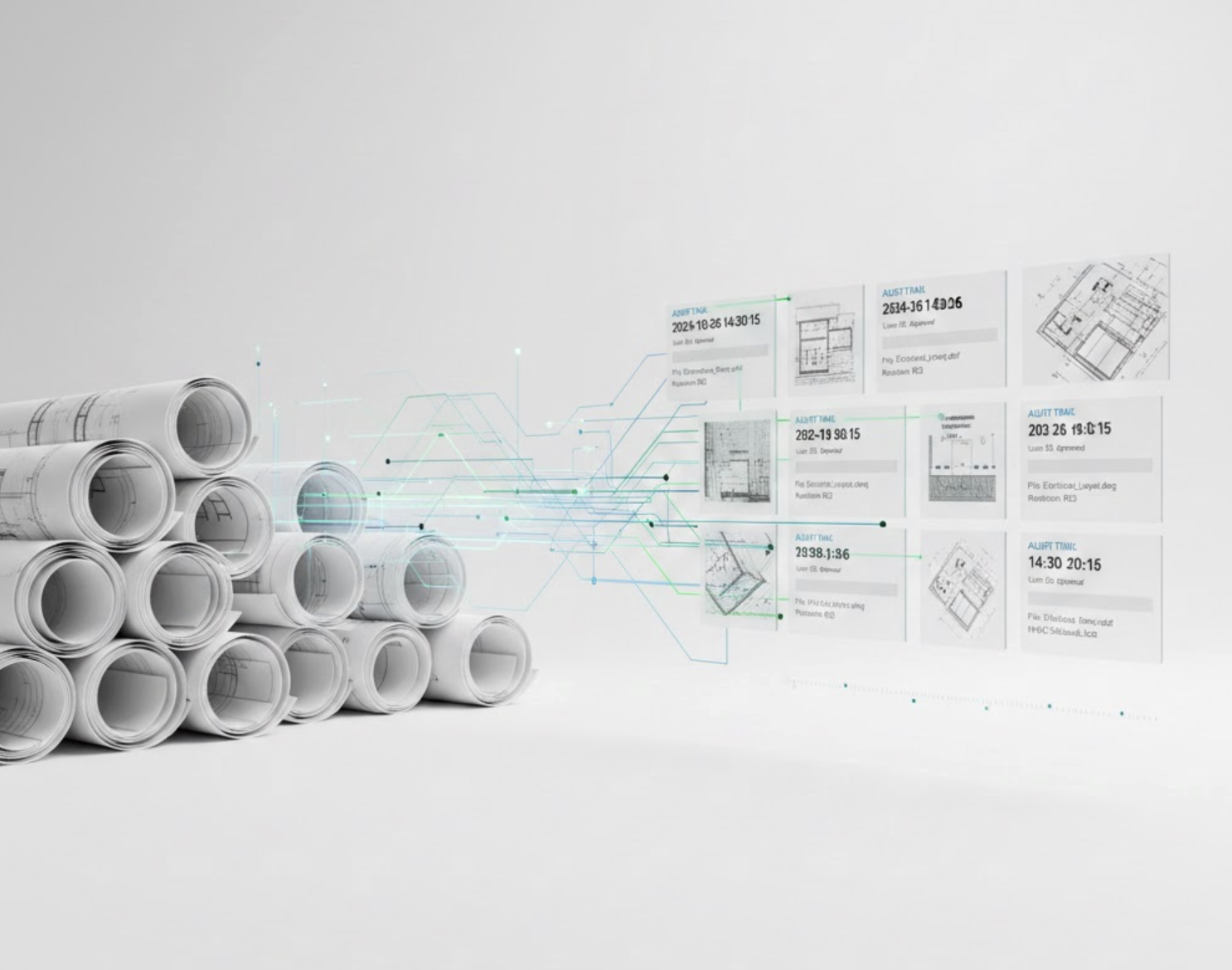The True Cost of Poor Version Control in Mega Projects
Poor version control in mega projects can have far-reaching and detrimental effects on project outcomes. As construction professionals continue to strive for efficiency and cost-effectiveness, understanding the implications of inadequate version control becomes crucial. In this blog post, we will explore the various costs associated with poor version control and discuss how Zepth’s construction management tools can mitigate these risks.
Impact on Projects
When project teams fail to implement robust version control, the results can be disastrous. A lack of management over document versions is a precursor to:
- Cost Overruns and Delays: Unmanaged changes lead to scope creep, resulting in increased costs and extended project timelines. This often occurs due to confusion over document versions, which creates misunderstandings and leads to misuse of resources.
- Resource Inefficiencies: Misalignment on file versions can escalate labor costs due to unnecessary rework, duplicate tasks, and incorrect allocations of manpower and materials.
Direct Costs
The direct consequences of poor version control manifest in various ways:
- Rework and Corrections: Working from outdated files is among the primary contributors to project inefficiencies. Teams face additional labor costs and prolonged timelines as they attempt to correct mistakes caused by previous versions.
- Resource Misallocation: Ineffective version control is responsible for resource inefficiencies that result in unnecessary expenses tied to duplicate tasks or the erroneous allocation of resources.
Indirect Costs
The ripple effects of poor version control can lead to significant indirect costs, including:
- Delays and Schedule Overruns: Poor version control can trigger delays that complicate timelines across all project phases, leading to potential quality issues and necessitating further rework.
- Supplier and Contractor Miscommunication: When teams rely on outdated documents, miscommunication can ensue with suppliers and contractors—resulting in quality discrepancies or additional rework, further impacting project finances.
Financial and Operational Consequences
Inadequate version control can lead to:
- Extended Timelines: Poor version control not only prolongs project completion but also elevates overall costs, diminishing operational efficiency.
- Increased Stress and Inefficiencies: Misalignments and misunderstandings can generate undue stress among team members, reducing synergy and overall productivity.
Best Practices to Avoid Costly Mistakes
To minimize the risks associated with poor version control, consider the following best practices:
- Implement Robust Version Control Systems: Utilizing reliable version control tools can effectively manage changes, reduce misunderstandings, and maintain a structured history of project documents.
- Regular Updates and Communication: Ensure that all team members have access to the latest versions of documents and maintain open communication channels to prevent the issues linked to outdated files.
- Training and Adoption: Providing proper training on version control systems and promoting their widespread adoption throughout the team will help maintain consistency and minimize errors.
Role of Zepth in Construction Management
Zepth plays a pivotal role in addressing the challenges presented by poor version control in mega projects through:
- Integrated Project Management: Zepth offers integrated solutions equipped with robust version control features, ensuring that all team members are aligned and using the most current project documents—substantially reducing the risks associated with poor version control.
- Risk Management: Zepth’s tools help identify and mitigate risks related to version control through advanced analytics and real-time monitoring, fostering proactive decision-making.
- Efficient Collaboration: By providing a centralized platform for document management and collaboration, Zepth facilitates effective teamwork and minimizes the likelihood of miscommunications and misunderstandings.
Market Trends and Statistics
The significance of version control in construction management is underscored by the following market trends:
- Growing Demand for Version Control: The global version control system market is anticipated to grow substantially, projecting a value of USD 1.11 billion in 2025 and USD 2.39 billion by the end of the same year, fueled by cloud adoption and AI-powered development tools.
- Popular Version Control Systems: Tools such as Git, Bitbucket, and other cloud-based solutions have emerged, featuring diverse pricing models tailored to various organizational needs.
In summary, understanding and addressing the true cost of poor version control is essential for the success of mega projects. By implementing best practices and leveraging the innovative tools provided by Zepth, project teams can significantly enhance their efficiency, lower costs, and achieve successful project outcomes. To learn more about how Zepth can assist you with construction document management and integrate advanced version control into your workflow, explore our platform today.




